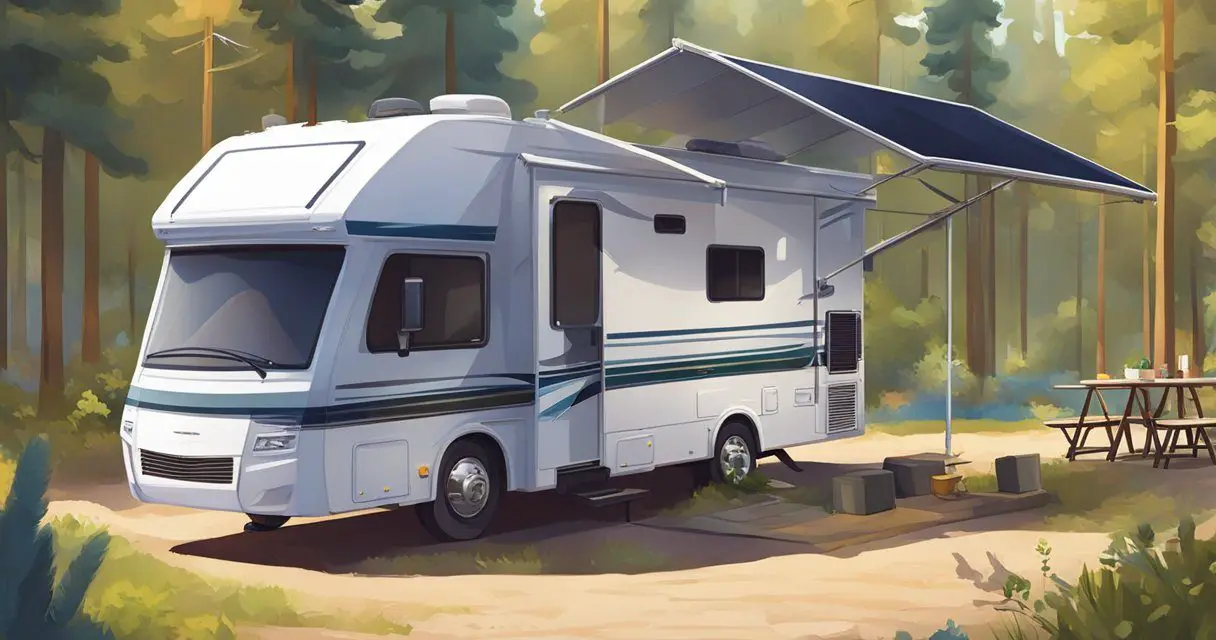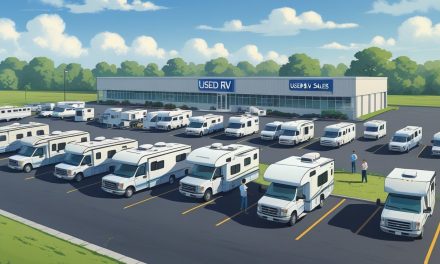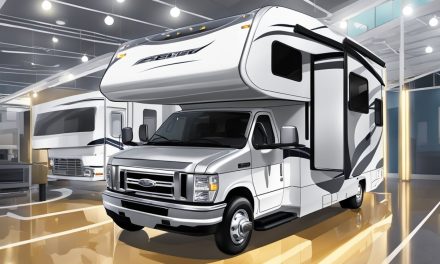When considering solar power for your RV, it’s important to weigh the pros and cons. While solar systems can offer independence from traditional power sources, there are factors that might make them less appealing for some RV owners. Understanding these reasons can help you decide if solar power is the right fit for your needs.
When we ran our poll asking if Solar was important in your RV, most of our readers said it was not important. In this article we go over 5 reasons the majority or our readers may be right.
Exploring alternatives and considering the limitations of solar power in certain situations can guide you in making an informed choice. Whether it’s cost, efficiency, or maintenance, having a clear picture of what solar systems entail is crucial when planning your RV adventures.
1) High Initial Costs
When it comes to setting up solar on your RV, the price tag can be a shocker. The initial investment includes the cost of solar panels, inverters, batteries, and other hardware. It’s not just buying a few panels; you’re looking at a whole system.
Installation can also add up if you’re not doing it yourself. Labor charges can increase the cost significantly. Plus, not all RVs have the infrastructure to easily support solar panels, which might require additional modifications.
Even if you’re tech-savvy, DIY installation means buying tools and spending time. Tack on the potential learning curve if you’re new to solar technology. Additionally, higher-quality brands tend to cost more, aiming for longevity and effectiveness. While these systems might pay off eventually, the upfront hit to your wallet is significant.
2) Limited Power Capacity
Would you like to save this article?
When you’re considering solar power for your RV, think about the actual power capacity you’ll get. Solar panels can only generate electricity when there’s sunlight, which means cloudy days or shady campsites can limit your power supply.
Most RV solar systems are not designed to run all your appliances at once. Your setup might manage essentials like lights and small electronics, but larger demands like air conditioning or microwaves will be harder to support purely through solar power.
The storage capacity of your battery bank is another limitation. If your battery isn’t big enough, it won’t hold the power your solar panels generate. This could mean running out of juice sooner than expected, especially if you’re not planning to move your RV frequently or when sunlight is scarce.
3) Weather Dependency
When it comes to solar power on an RV, the weather plays a big role in how effective your setup will be. Solar panels rely on sunlight to generate electricity, so cloudy or rainy weather can significantly reduce their efficiency. This means that on overcast days, your power supply might not meet your needs.
If you’re traveling through areas with unpredictable weather patterns, solar may not always be reliable. For example, prolonged periods of bad weather can leave you without enough power, requiring a backup plan. Having an alternative power source becomes necessary to prevent any disruptions in your trip.
This dependency on sunny weather might make some people reconsider their reliance on solar panels. While sunny days will charge your batteries effectively, more challenging weather conditions require planning and possibly adjusting your route to maximize sunny days. This can limit your flexibility and spontaneity when planning your travels.
Ultimately, while solar power can work great under optimal conditions, its efficiency diminishes with adverse weather. It’s something to keep in mind to ensure you’re never left without power during your adventures. It’s always a good idea to have a backup power source ready just in case the sun doesn’t shine as much as you’d hoped.
4) Space Consumption
When you’re setting up solar panels on your RV, space consumption can quickly become an issue. Many RVs have limited roof space, and mounting solar panels might mean sacrificing an area that could be used for other purposes, such as additional storage or roof amenities.
Solar panels require a certain amount of clearance. This often means you’ll need to rearrange other roof installations or forgo them entirely. Roof vents, satellite dishes, or air conditioning units may need to be repositioned or omitted.
Consider the space inside your RV too. Solar systems usually require additional components like inverters, charge controllers, and batteries. These need to be stored, and finding room can be challenging, especially in smaller RVs.
If you plan to add solar panels, you’ll need to carefully evaluate how much space you have available and weigh the benefits against the potential loss of room for other important features.
5) Battery Maintenance
When you install solar power on your RV, battery maintenance becomes an important task. Solar panels depend on batteries to store the energy they capture. If you’re not into checking and maintaining batteries regularly, this can become a hassle.
You need to ensure that your batteries are in good condition and performing well. This includes checking electrolyte levels, cleaning terminals, and monitoring charge levels. Neglecting these tasks could lead to reduced battery life or even failure.
Depending on the type of battery you choose, maintenance requirements can vary. For example, lead-acid batteries require regular water top-ups, while lithium batteries are relatively low-maintenance. It’s essential to understand what your specific battery setup needs.
Staying on top of battery maintenance enhances your solar system’s efficiency. But if you prefer a set-it-and-forget-it approach, you might find this ongoing maintenance to be a drawback.







